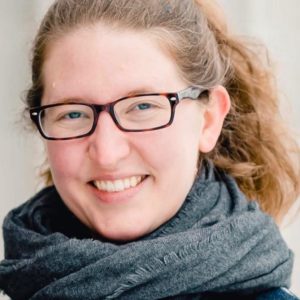Dr. Casey Canfield 
Assistant Professor in Engineering Management & Systems Engineering
Missouri S&T
Friday, January 29, 2021
3:30-4:20pm via Zoom
Abstract:
Dr. Canfield designs, tests, and models human-centered interventions for improving people’s abilities to understand and interact with complex systems. By combining analytical frameworks with user-friendly decision tools, she aims to improve system outcomes via interventions that involve big data, artificial intelligence, and automation. In this talk, she will highlight two projects. In the energy domain, she conducted an evaluation of a national designation program, SolSmart, that encourages local governments to engage in solar-friendly practices (funded by The Solar Foundation). We found that participation in the program was associated with a higher number of solar installations, increased installed capacity, and faster solar permitting times. In the healthcare domain, she is developing uncertainty metrics and visualizations to integrate artificial intelligence recommendations in the kidney transplant process (funded by National Science Foundation). This work aims to decrease kidney discard in order to improve patient outcomes and reduce healthcare system costs.
Bio:
Casey Canfield is an Assistant Professor in Engineering Management & Systems Engineering at Missouri S&T. She focuses on quantifying the human part of complex systems to improve decision-making at individual and organizational levels in the context of energy, rural broadband, governance, and healthcare. Her research has been funded by the National Science Foundation, Alfred P. Sloan Foundation, The Solar Foundation, Missouri Department of Transportation, and U.S. Department of Education. She also serves on the advisory board of the Missouri Science & Technology (MOST) Policy Fellowship and the Missouri Energy Initiative. She has a PhD in Engineering & Public Policy from Carnegie Mellon University, where she published research on behavioral interventions in the context of energy and cybersecurity. After completing her PhD, she was a Science and Technology Policy Fellow in the U.S. Department of Energy’s Solar Energy Technologies Office. She was primarily involved in designing and managing programs that aim to increase innovation in the energy sector.